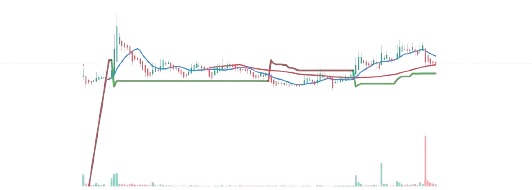🏢 Company Snapshot
Niva Bupa Health Insurance Company, a joint venture between UK’s Bupa Group and India’s True North, is a leading standalone health insurer in India. Founded in 2008, the company covers over 15 million lives across 22 states and 4 union territories, with partnerships spanning 600 plus hospitals. With a strong digital infrastructure— 11 million plus app downloads and 0.5 million plus monthly active users and a retail-dominant portfolio (65.5%), it stands at the forefront of India’s growing health insurance sector.
📊 Financial Performance: FY25 Snapshot
Gross Written Premium (GWP): ₹7,406 Cr (↑32% YoY)
Net Earned Premium: ₹4,894 Cr (↑28% YoY)
Net Profit (iGAAP): ₹214 Cr (↑161% YoY)
Investment Yield: 7.40% on AUM of ₹8,175 Cr
Solvency Ratio: 3.03x (Regulatory minimum: 1.5x)
Expense Ratio: 37.4% (Target: 35.5% in FY26)
📈 Strategic Developments
Retail Focus: 65% of the portfolio
New Product – "Rise": Targets the "Missing Middle", launched Feb 2025
Auto-adjudicated Claims: 28%
Claim Settlement Ratio: 93%
Preferred Provider Network (PPN): 600 hospitals across 40 cities
🏦 Stock Snapshot
Market Cap: ₹15,000 Cr
EPS (FY25): ₹1.17
Promoter Stake: 56%
FII Holding: 8.9% (↑ QoQ)
DII Holding: 9.7% (↓ QoQ)
🔍 SWOT Summary
Strengths
GWP CAGR of 41% (FY22 – FY24)
Global expertise via Bupa; low leverage (D/E: 0.08)
Strong digital ecosystem and multi-channel distribution
Weaknesses
High expense ratio (43% historically; 37% in FY25)
Persistent underwriting losses
Claim settlement ratio lags behind peers
Opportunities
Health insurance CAGR: 15–17% until FY30
Expansion in Tier-2/Tier-3 cities
Ecosystem diversification (diagnostics, wellness)
Threats
Intense competition: ICICI Lombard, Star Health, HDFC Ergo
Regulatory actions: ₹20 lakh IRDAI fine in 2023
📉 Challenges & Concerns
Expense of Management: Still elevated at 37.4%
Core Underwriting Losses: Persist despite headline profit
Valuation Concerns: Premium multiple (P/E of 60.05x)
Claims Process Efficiency: Needs further improvement
🔮 FY26 Outlook & Analyst View
Q1 FY26 Performance:
Revenue: ₹1,626 Cr
PAT: ₹206 Cr
Underwriting losses continues
Growth Drivers:
Distribution expansion
Cost-efficiency via digital tools
New products & integrated health ecosystem
Projected Earnings CAGR (FY25–FY27): 53%
🛡️ Competitive Edge
Brand recognition and global backing via Bupa
Advanced digital capabilities
Preferred Provider Network with 600 hospitals in 40 cities
Analytics-driven claims and underwriting
🔚 Final Takeaway
Niva Bupa is a textbook case of aggressive growth backed by global credibility and digital muscle. However, its long-term success hinges on controlling operational costs, improving claims efficiency, and moving from growth-at-all-costs to sustainable profitability. As India’s health insurance market continues to mature, the company has a golden opportunity—provided it addresses its internal inefficiencies.
For aggressive investors, Niva Bupa seems presents a compelling long-term growth story. With its robust expansion, digital innovation, and support from a global healthcare giant, it holds significant potential in India’s burgeoning health insurance market. Such investors may consider accumulating the stock on market dips to benefit from its upward trajectory.
On the other hand, conservative investors may prefer to adopt a more cautious approach. Given the current challenges related to underwriting losses and elevated expense ratios, it would be prudent for them to wait until the company demonstrates consistent profitability and improved cost efficiency before making any investment decisions.
⚠️ Disclaimer
This analysis is for educational and informational purposes only and does not constitute any financial advice. All data is sourced from public company filings, analyst reports, and third-party sources believed to be reliable. In line with SEBI’s guidelines, all market data is presented with a three-month lag. Investors should carry out their own due diligence and consult the financial advisor before making any investment decisions. The views expressed are personal and may be subject to errors or bias as the author is also holding a very small quantity of holding in the company.
🗣️ Let’s Talk!
What’s your take on Niva Bupa’s high-growth strategy?
Do you believe the valuation is justified?
Have you had any experiences with the company’s services?
Share your views with us!














